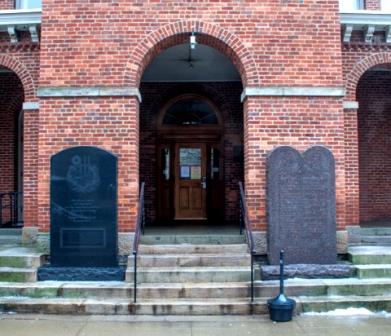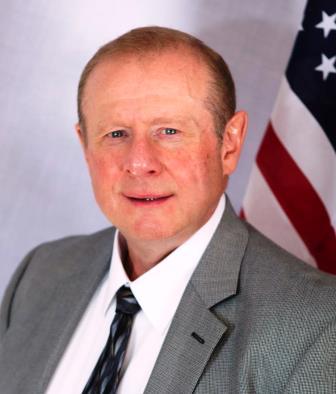CLEARFIELD – A jury deliberated for almost an hour-and-a-half Tuesday before finding a Houtzdale man guilty of stealing a vehicle from an auto dealership/garage in April of 2015.
Bruce Irwin Hockenberry, 58, of Houtzdale was found guilty of theft by unlawful taking, receiving stolen property and unauthorized use of a motor vehicle. However, he was found not guilty of burglary.
Hockenberry was accused of burglarizing Jacob George Ford Sales, Houtzdale, stealing a 2015 Ford Escape from the lot and then abandoning it in the woods during the early-morning hours of April 24, 2015.
District Attorney William A. Shaw Jr. presented the case on behalf of the commonwealth. Hockenberry was represented by defense attorney Michael Marshall. Judge Paul Cherry presided over the trial.
During his closing arguments, Marshall pointed out that the key to the stolen vehicle was locked up inside of the garage. There wasn’t any testimony or evidence presented as to how Hockenberry would have gotten that key, he said.
He showed the jurors exhibits of the smashed out window in the garage door. He noted that most of the broken glass from it was outside in a pile, suggesting it was smashed out from the inside.
“It doesn’t make sense. It doesn’t sound like someone broke in,” Marshall argued. Instead, he suggested it appeared like someone got inside without breaking in and then wanted to make it look like a break-in.
He also called attention to a “key” piece of evidence, a red flashlight, recovered from the stolen vehicle that wasn’t sent by the state police to the Erie Regional Crime Lab for analysis.
“It can’t be disputed that they left it sit in the evidence room, and it may have been a potential source of evidence,” Marshall said. “… Even if there’s only a slight chance, it is still evidence; you have to check that.”
He said perhaps, state police were afraid it would come back with someone else’s DNA and “mess up the case.” “The only fingerprint they have is on that Kid Rock CD,” he told jurors.
Marshall put emphasis on the fact that the state police didn’t collect any fingerprints matching that of Hockenberry inside of the stolen vehicle or in the garage. He also said that once recovered, the stolen vehicle wasn’t impounded until its processing.
“You have to think about these things,” he said. “Is that proper police procedure?”
He also asked why Hockenberry would break in and go through all of the bother to find a key, match it to a vehicle and steal it only to dump it in the woods.
Lastly, Marshall pointed out that three state troopers testified that Hockenberry had confessed to committing the crime at the time of his preliminary hearing. However, that confession, he said, didn’t come out until shortly before the trial.
“Bruce agreed to talk to state police twice,” Marshall said, “and told him he didn’t do it. Does it make any sense that he’d get to his preliminary hearing months later and say, ‘hey, I did it?’”
In his closing, Shaw countered, reminding jurors they were only to consider the evidence and testimony presented during the trial. “You can’t base your decision on what wasn’t presented,” he said. “That’s not evidence.”
Shaw also asked jurors not to give any weight to the testimony that Hockenberry had previously entered a guilty plea. He said it’s “not typically known” and everyone has the right to take their case to trial.
He said when Hockenberry confessed to the state troopers, it was after his preliminary hearing and they believed the case was resolved and not going to trial. As a result, they didn’t find it necessary to document it.
However, Shaw said Hockenberry changed his mind and wanted to take the case to trial. “And, that’s fine, but fair is fair. He made those statements and the commonwealth has the right to use his own words against him.”
Shaw suggested that when the window was smashed out of the garage door, glass fell inside. The broken glass piled outside, he said, was likely removed in order for entry to be made without injury.
He also said the commonwealth didn’t have to prove specifics on how Hockenberry got into the lockbox, as that wasn’t an element of burglary.
Shaw concluded, saying the stolen vehicle was found not far from Hockenberry’s residence in a wooded area. “It wasn’t dumped there for good,” he argued.
He reminded jurors that Hockenberry had testified that his truck wasn’t legal and couldn’t be driven and he often relied on others for transportation. “He wasn’t done with it. He needed a vehicle to drive around,” Shaw said.
“It comes down to who you are going to believe. Are you going to believe the state police or are you going to believe the defendant and his long-time fiancée who has a motive to help him out.”




